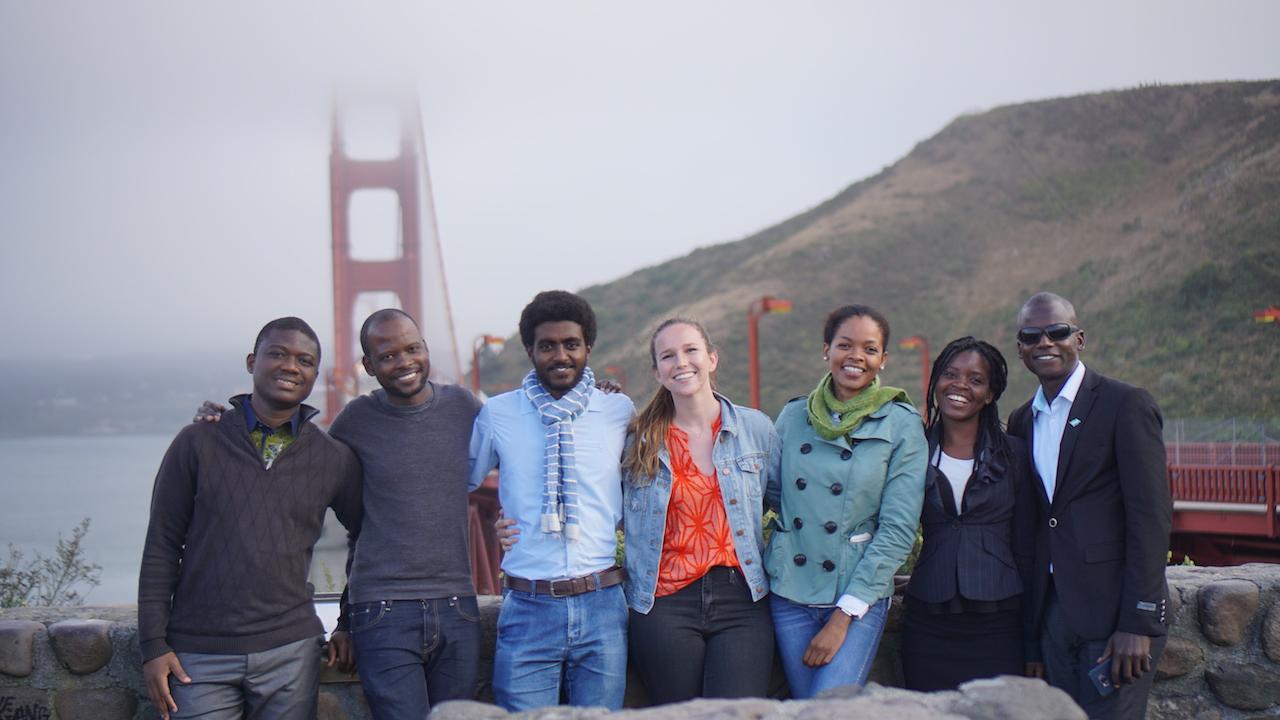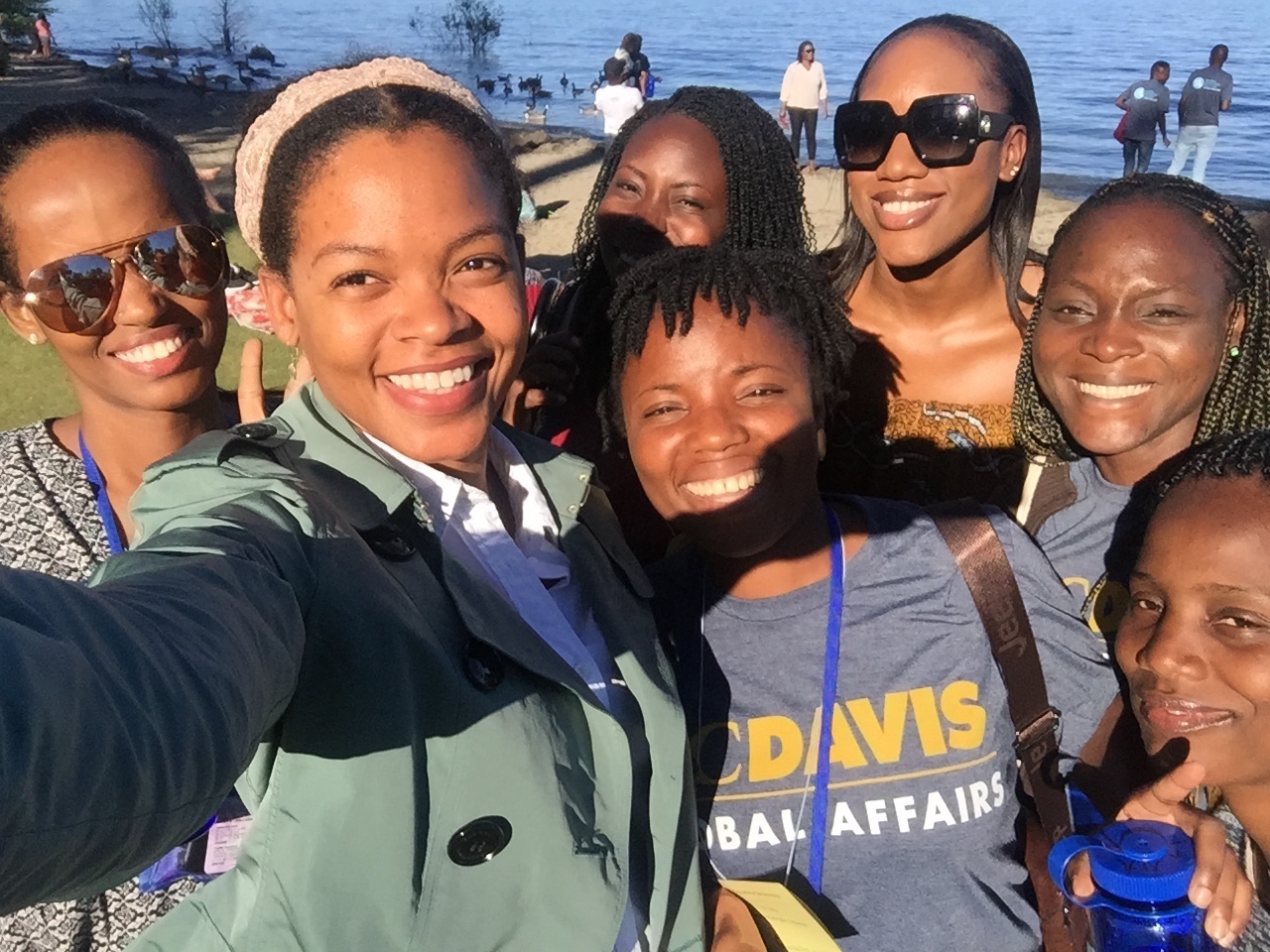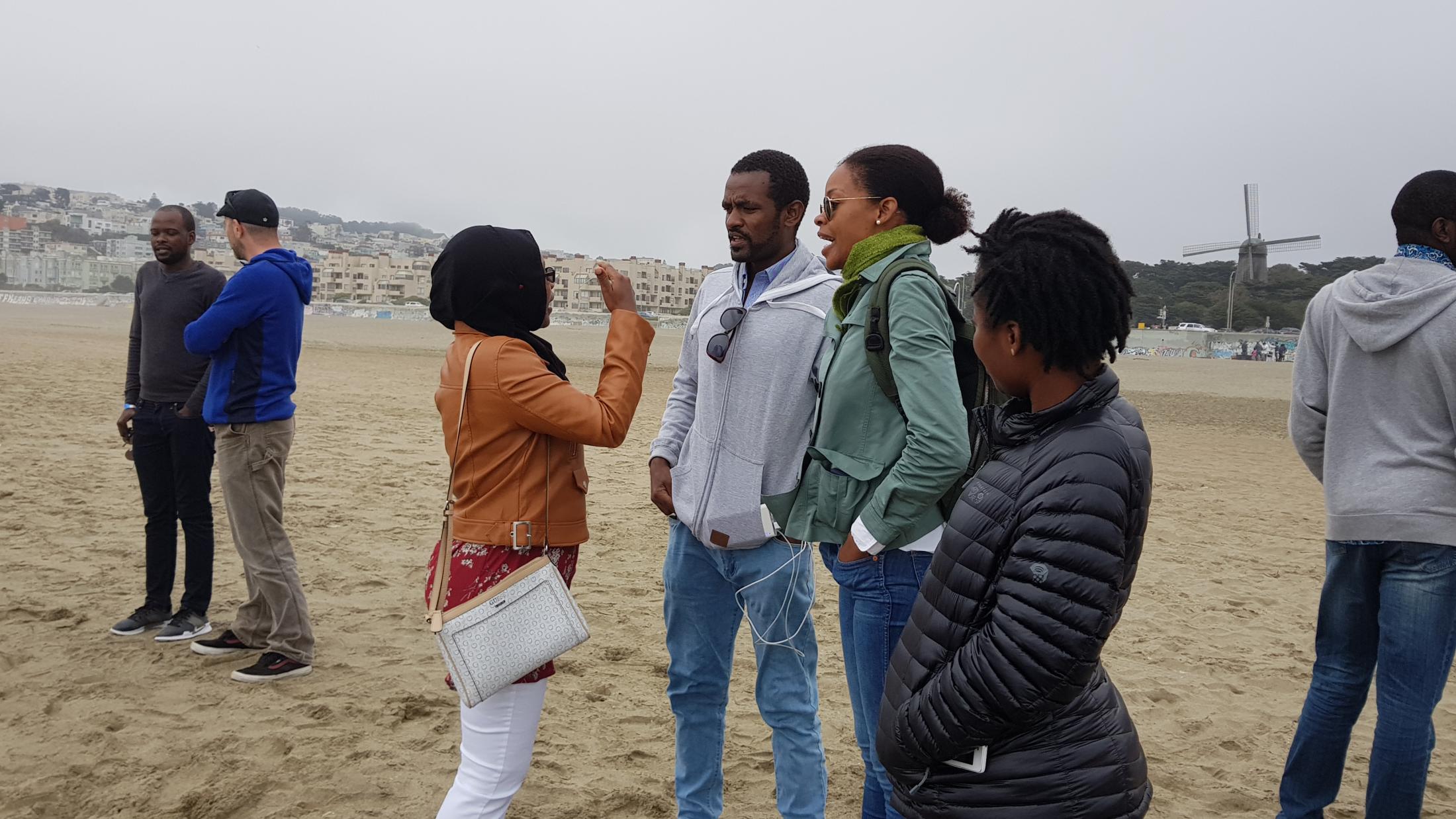
My Global Education: A New World Perspective
By Tene Goodwin, student writer, Global Affairs
My name is Tene Goodwin and I recently completed my studies at UC Davis in economics and professional writing in the College of Letters and Science. This summer I had the amazing opportunity to work as a communications intern with UC Davis Global Affairs and support the Mandela Washington Fellowship.
I grew up in a different country, and because I travelled a fair amount, learned a few languages and read a lot of books I considered myself a global citizen. So much so that when I came to UC Davis and heard about their Big Idea of Global Education for All, I decided it was geared towards other students, not me. But this summer, I learned through my experience working with the Mandela Washington Fellowship program just how important a global education is, and how forward thinking UC Davis is in working to make it available to all.
In June, 25 young professionals and future leaders from 17 sub saharan African countries arrived at UC Davis for a 6 week fellowship program, part of a larger cohort of 700 young leaders dispersed to 26 other universities across the country, a program sponsored by the U.S. Department of State. My task was to communicate their journey through photography and written words. So, I took photos, I tweeted, I instagrammed and I wrote articles but in order to do any of this I had to figure out ways to connect with our fellows.
The first day was easy. When I met our fellows to take them on a campus tour the entire group immediately gravitated towards me. I was surprised but happy to feel such an immediate kinship with a group of people I had never met before. Later on when we became friends we talked and laughed about the first day and they said: “Tene, remember the day we met you and we ALL came towards you? We were so happy to see you, we saw you and we said, Yes, finally! our sister!”

But just looking like someone isn’t enough to understand them or have them understand you, neither is it all you need to sustain a lasting connection or forge a friendship. For this, you have to go beyond the surface. I learned this over the six weeks when it began to unfold that cultural differences and life experiences can make for conflict even in the most welcoming and comforting environments. Even in a perfect setting you have to communicate, not judge, share about yourself and be willing to listen when other people share their stories. Understanding how to adapt to different cultures allowed me to better assist our fellows as they settled into their time at UC Davis.
Our days were packed with academic sessions on campus. exploring and learning from government officials and public agencies in the Sacramento area and tech companies in the Bay Area with time left over for networking and socializing. Hosting the fellows at UC Davis made them see a different side to life, and sometimes it was as was as if we were both seeing America for the first time, me through their eyes and them through mine.
Global education is not just about discovering foreign places or learning a second or third language. It is also about gaining a new understanding and appreciation of what you thought you knew. It helps you to see life differently, relate to people on a different level, and not just that, but you might even reshape someone’s negative perceptions. As the end of the fellowship neared several of our fellows approached me with similar confessions, “You know something Tene, I really wanted to be a Mandela Washington Fellow but recently I wasn’t sure I wanted to come to America… I was actually scared to come here, you see a lot on the news, but you...people in Davis and in California makes it feel different. This is not what I expected. It is so welcoming, everybody is friendly.. I think I love America. Is this what the American dream feels like?"
A group of people or even a single person can change someone’s perception of an entire nation where in a short time it can feel like home.
At the core of all relationships and probably all conflicts is communication, or lack of it. As interconnected as the world is, it doesn’t matter unless we actually know how to connect with others. My Global education experience at UC Davis taught me how to do just that. Spending time and learning from people of different cultures allowed me to ask questions I wouldn’t have otherwise thought to ask, and ponder answers to questions that could only be asked by someone with experiences different to mine.
Working with our 2018 Mandela fellows was an education in itself and throughout it, I realized that the best way to learn is by being honest enough with ourselves about what we know and what we don’t know. Just because I read a couple books by a Nigerian author doesn’t mean I know the entirety of the African experience and just because I took a class on economic development doesn’t mean I know all the intricacies of the developing world.
It was inspiring to learn about the work our fellows were doing in their respective countries and how they use their privilege to disrupt the status quo and uplift their communities. These are young people who are not afraid to interfere in order to improve or correct a situation. Palesa Mothapo a research scientist from South Africa, told us a story about using the scientific method to solve problems of inadequate food storage and reduce food waste starting with one vendor at a vegetable market in Nigeria. Mkufu Tindi, an engineer from Tanzania shared the story of her decision to be an active role model and a technical mentor for girls to encourage them to consider a path in a STEM, with an aim to bridge the gender gap in scientific fields. Samuel Biton an engineer from Malawi shared his experience of growing up in an environment that did not prioritize the education of girls and how this pained him so much he took action by starting with a modest goal of mentoring and providing scholarships to high school girls interested in studying engineering. The issue of women in STEM and educating girls as a key to the sustainable development of Africa was of focus throughout the fellowship and I saw first hand how a group of people united towards a noble cause can effect positive change. The idea of creating a scholarship program for girls was proposed and over three weeks it was discussed, a board was created and the cohort is now working towards a launching of four scholarships by 2020.
Throughout the fellowship, A recurring heated discussion was on gender equality. There were different experiences and opinions shared. At times offense was taken, sometimes even by me, of things said that didn’t quite come out the right way. But I learned that It is better to offend and realize it and then learn from it than to be silent your entire life because you don’t want to step on any toes. If we are so afraid to offend someone and so scared of being corrected, we won’t ever loosen up enough to share our true selves. Yes, sometimes our true self needs to be reformed but we have to also remember that none of us are beyond making mistakes and so we should remain ready to learn from them when they inevitably arise. We cannot be limited in your growth because you believe you are right or because you are afraid that you might be wrong. It is only by engaging in dialogue that we can transform our way of thinking for the better.

This summer's internship with UC Davis Global Affairs made me see the world through a new lens. I learned about problems other countries are tackling that are so foreign to some of us here in America, and I had lengthy discussions about issues we don't talk about because we think they will never affect us. I never wonder whether or not I will be able to charge my phone and computer every night but my friend from Ethiopia told me about sometimes not having electricity for days or weeks at a time. Living in America amidst this hookup culture where it is easy to confuse having fun with being reckless, we don’t often have conversations about HIV and AIDS because we think that it’s an epidemic in other parts of the world. These are issues that I often read about but hearing first hand accounts of the social and economic impact of this epidemic makes me stop and think, and then feel moved to action. The more I know about the world, the closer I get to identifying a cause I care about, feel passion for and can dedicate my life towards.
Tomorrow, I board a flight to France where I will live and study for a year as part the UC Education Abroad Program (UCEAP). I’m not sure what will happen after that but after this summer’s global education experience I feel so much more prepared and now see so many more opportunities available to me, which maybe were always there but only now I know I am prepared for.